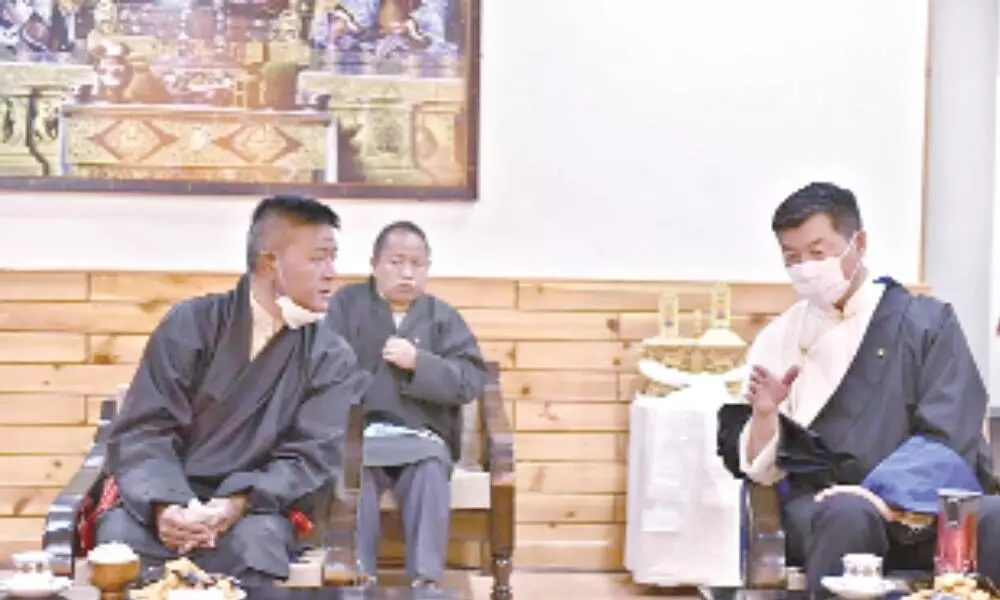'Will work to resolve Sino-Tibet conflict'
image for illustrative purpose

Dharamsala The democratically elected new political head of the Tibetan people, Penpa Tsering, globally known as Prime Minister-in-exile, on Thursday pledged to carry out the responsibility of finding a lasting solution to the decades old Sino-Tibet conflict, besides taking care of the Tibetan people.
In a message after taking oath of office here, which was virtually attended by Tibetan spiritual leader the Dalai Lama, Tsering, who holds a long and distinguished career in public service and a deep understanding on the changing dynamics of situation in Tibet and China, said the main responsibility of his Cabinet is to seek relief from the critical challenges being faced by endangered Tibet and suffering of the Tibetan people. Toeing the path adopted by the Dalai Lama for years to resolve the issue of Tibet with China through the "'middle-way approach", Tsering said, "We shall resolutely tread the path of middle-way espoused by His Holiness the Dalai Lama that commands high degree of support by general population in and outside Tibet."
"We will reach out to the Chinese government to find a mutually beneficial, negotiated, non-violent solution to the Sino-Tibet conflict. We hope that this in turn shall set a good example in resolving conflicts around the world," the former speaker of the Parliament-in-exile said.
The "middle-way approach" neither seeks separation from the People's Republic of China nor a high degree of autonomy but genuine autonomy for all Tibetan people under a single administration in Tibet.
On resolving the issue of Tibet with China by the CTA, he said: "Till such a lasting solution is found, we shall represent the voices of Tibetans inside Tibet and by pooling the resource of every single Tibetan, optimise our global advocacy efforts.
"Likewise, we will put in every effort to seek increased interaction between Tibetans in Tibet and those in exile and work towards realising the wish of His Holiness the Dalai Lama to visit China." Since the early 1970s, the CTA has pursued dialogue with the Chinese government based on the "middle-way approach". Responding to the Chinese government's white paper titled 'Tibet since 1951, liberation, development and prosperity' released on May 21, Tsering said, "We are open to sending a people to verify all the claims made in the white paper." Saying that his Cabinet will give due importance to the experience of the civil servants, he said his priority would be mainly working on resolving the Sino-Tibet conflict, reaching out to governments and building closer relations between the administration and the public.
"With this in view, from today onwards, we will take a new step in opening a new chapter in the course of struggle," he said. On the coronavirus pandemic, the CTA President, who was greeted by US House of Representatives Speaker Nancy Pelosi two days ago on his victory in the general elections that saw participation of 77 per cent of the electorates, said one of the first tasks of the administration would be to look into what more can be done to contain the spread of the virus within the Tibetan Communities in India and Nepal.

